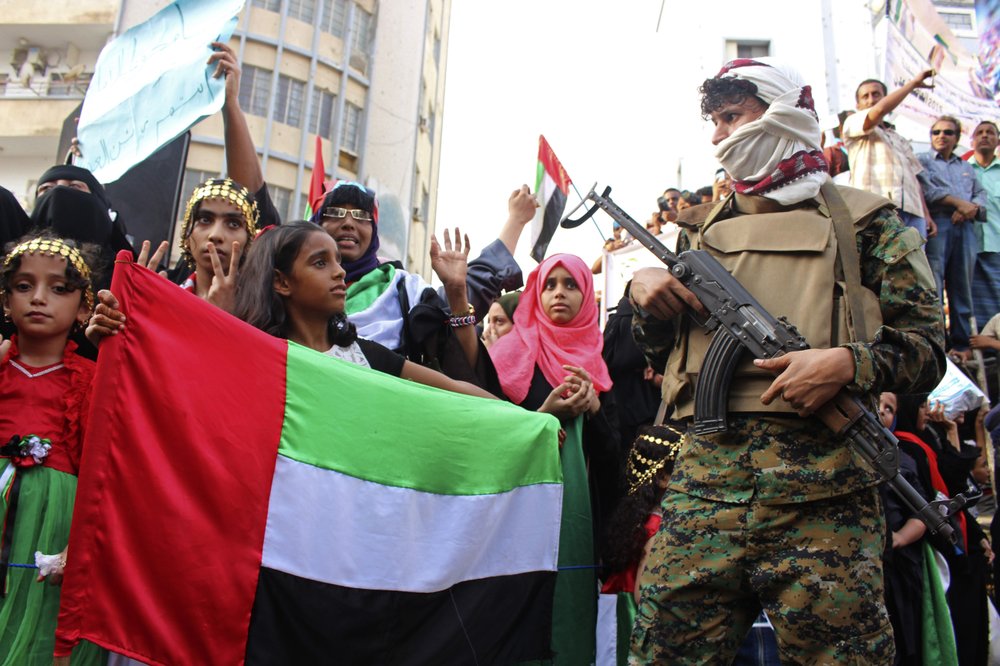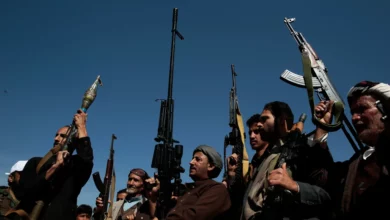Sanaa – With an unclear political future ahead for embattled Yemen, the Arab world’s poorest country continues to suffer from an increasingly ravaged economy. The dire conditions are fueling calls to bring the demonstration movement to a close in an effort to usher stability back to the country.
But a diplomatic solution aimed at quelling Yemen’s five months of unrest is proving hopelessly elusive. Anti-government protesters demand President Ali Abdullah Saleh, currently in Saudi Arabia receiving medical treatment, abdicate while government loyalists support the strongman’s retention of power until his term ends in 2013.
Innumerable Yemenis have lost their jobs in the past several months. Fuel and gas shortages are rampant. And those that aren’t taking to the streets on a daily basis are losing faith in the protesters’ ability to positively impact the country.
“This is the change they [the anti-government protesters] are calling for!” shouted one Sanaa resident this week, referring to the economic collapse.
The deteriorating security situation continues to add to the country's woes, as well. Shootings commonly erupt in Sanaa fuel queues. And in provincial Yemen, particularly the south, the government is waging persistent combat with disparate Islamist factions. Some Yemenis, who dismiss the need for further reform pressure, are saying safety and stability are now the foremost priority.
“We don’t want change. If Saleh wants to torture us to stay in power, let him stay in power and end this tragedy,” said Amani Ali, a Sanaa schoolteacher. “We don’t want freedom. We want food and safety.”
The Studies and Economic Media Center, a Middle Eastern non-profit, has issued recent warnings on impending food crises in Yemen due to skyrocketing prices and electricity blackouts. The Center’s research concluded that ten thousand Yemeni families are malnourished because they are unable to purchase staple commodities.
Since January, according to the Center, prices of basic products, such as wheat, flour, sugar, yogurt and milk, have rose at rates ranging from 40 to 60 percent. The price for drinking water has increased by more than 200 percent. Petroleum products, like gasoline and diesel fuel, now sell for up to 900 percent of their former cost. This jump fuels price swelling for all goods and services, leading to the suspension of much of the service sector.
Price hikes and the inability to acquire food will lead to future psychological and social damage among countless Yemenis, according to the research. The Center urges all parties involved to respond to these conditions by allowing the transfer of products to badly-hit urban areas. And such an atmosphere is already leaving many Yemenis with little hope for the future.
“We shouldn’t call for Saleh to leave. We should have left ourselves,” said Ahmed al-Mklafi, a secondary school student. “We shouldn’t think of who to blame now. We should learn from this.”
Due to provincial lawlessness, Mklafi claimed the two-hour drive from Dhamar Governorate to Sanaa recently took more than 11 hours.
“Tribal thugs spread across the roads and steal fuel from the cars,” said Mklafi. “I traveled all the way [to Dhamar] to buy 100 liters of fuel. They stole it…there was no security to protect us.”
With high poverty rates and poor education, Yemeni analysts say state media is utilizing religion to manipulate many Yemenis into opposing the protest wave. Sheikhs aligned with the government characterize the mass dissent as un-Islamic.
“Protesting against the ruler brings chaos and Islam doesn’t encourage anyone to bring chaos,” said Oum Ali, a 56-year-old uneducated woman. “We should always obey our sheikhs. They know better.”
Other protest critics agree with reformist demands for freedom and justice but feel Yemeni society simply isn’t conducive for such objectives. Yemen is severely fragmented and extremely well armed. For that reason, some argue, a strongman like Saleh is the best option.
“We are not Tunisia or Egypt. We are a tribal society with too many corrupt figures,” said Sanaa resident Ahmed al-Amary. “At least Saleh knew how to deal with the tribal leaders…who will be his replacement now that everyone will accept?”
But much of the criticism leveled at the demonstrations comes from those who directly benefit from Saleh’s rule. Saleh’s 30-year tenure is marked by pervasive nepotism and corruption. Membership in the ruling party makes getting a job or acquiring government aid significantly easier.
And every Friday, experts say, the Saleh regime pays supporters to turn out in droves on urban streets to counter the reform protests. They are also fed through government campaigns and given arms. Religious figures, Al-Masry Al-Youm learned, are also actively mobilizing Saleh supporters in exchange for compensation.
“Yesterday a well-known sheikh who gathers people to support Saleh on Fridays came to me to get a million and half Yemeni Rials…for his help in gathering people,” said one state employee, who requested anonymity due to the sensitive nature of the subject.




